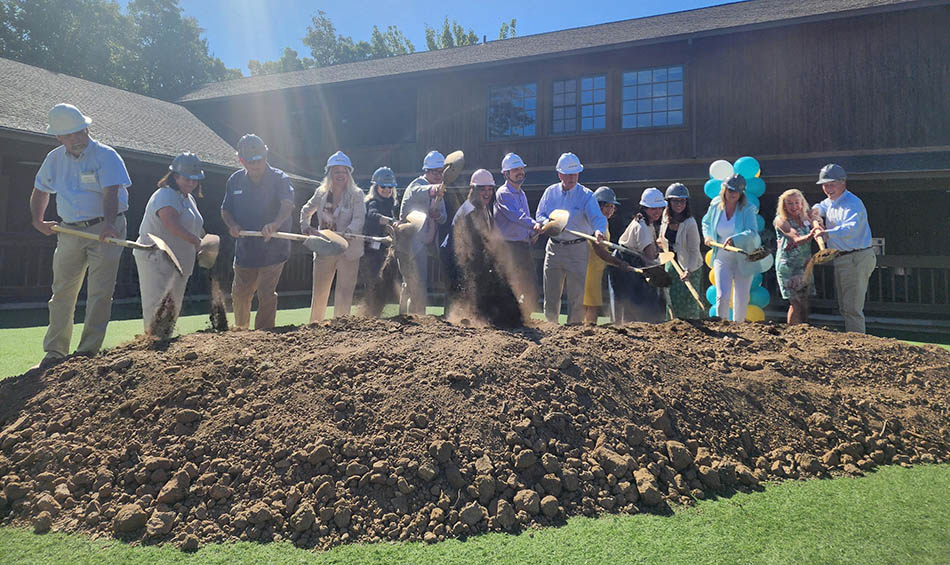CALIFORNIA CELEBRATES THE GROUNDBREAKING OF NAPA VALLEY YOUTH WELLNESS CAMPUS
Behavioral Health Services Expanding to More Than 1,950 Annually.
SACRAMENTO — On July 2, 2024, the Department of Health Care Services (DHCS) and
Mentis celebrated the groundbreaking of a new youth wellness campus that will serve at-risk children and youth who need mental health and substance use disorder treatment. DHCS awarded Mentis more than $4.7 million through the
Behavioral Health Continuum Infrastructure Program (BHCIP) to address gaps in behavioral health treatment. The community mental health clinic and community wellness/youth prevention center will serve an estimated 1,950 people annually.
With the recently approved Proposition 1 bonds, in 2025 and 2026, even more behavioral health treatment facilities will be funded and built.
 Groundbreaking for Napa Valley Youth Wellness Campus
Groundbreaking for Napa Valley Youth Wellness Campus
“DHCS is committed to supporting California's children and youth," said
DHCS Director Michelle Baass. “We are pleased to work with partners like Mentis to provide vital mental health and substance use disorder services to young people in need."
“This clinic and youth wellness campus will provide much-needed support to youth who continue to struggle with life's stresses," said
Mentis Executive Director Rob Weiss. “We are eager to expand our continuum of care to serve children and youth with a wide spectrum of needs."
This effort, part of the
Children and Youth Behavioral Health Initiative, is a historic investment that provides grant funding to construct new facilities and expand existing facilities that help children, youth, transition age youth, and pregnant or postpartum individuals and their families with mental health and/or substance use disorders.
NAPA VALLEY YOUTH WELLNESS CAMPUS PROJECT: The new youth wellness campus will serve the behavioral, mental, and emotional needs of the greater community of children and youth in Napa Valley and their families. The project involves rehabilitating an existing private middle school campus building to incorporate a supportive art studio, supportive community space, and therapy rooms. Services will include wellness prevention activities for at-risk children and youth, mental health treatment, group therapy and/or family activities, and individual therapy sessions. Programs will be offered in English and Spanish and will be free and accessible to all. The campus' continuum of care is intended to attract a diverse youth population, including youth of color, LGBTQIA+, and justice-involved youth.
WHY THIS IS IMPORTANT: Through BHCIP, DHCS awards eligible entities funding to construct, acquire, and expand properties and invest in mobile crisis infrastructure to further expand the range of community-based behavioral health treatment options for people with mental health and substance use disorders. BHCIP is addressing historic gaps in the behavioral health care system to meet the growing demand for services and support throughout the lifespan of people in need. The Napa Valley youth wellness campus project received BHCIP Round 4 (Children and Youth) grant funding.
DHCS was authorized through 2021 legislation to award $2.2 billion in BHCIP competitive grants. In addition, DHCS will distribute roughly $4 billion in BHCIP grants under Proposition 1 bond funds.
Behavioral Health Transformation is DHCS' work to implement
Proposition 1. DHCS holds regular public listening sessions. Updates and recordings of the sessions are available on the
Behavioral Health Transformation webpage.
ABOUT BHCIP ROUND 4 (CHILDREN AND YOUTH):
BHCIP Round 4 focused on Californians ages 25 and younger, including pregnant and postpartum women and their children and youth ages 16-25, along with their families. The 52 awards totaling $480.5 million allowed for new construction and expansion of multiple outpatient and residential facility types, including children's crisis residential programs, perinatal residential substance use disorder facilities, community wellness/youth prevention centers, and outpatient treatment for substance use disorders. Please see the
BHCIP website for more information about grant recipients and additional details about all BHCIP funding rounds.